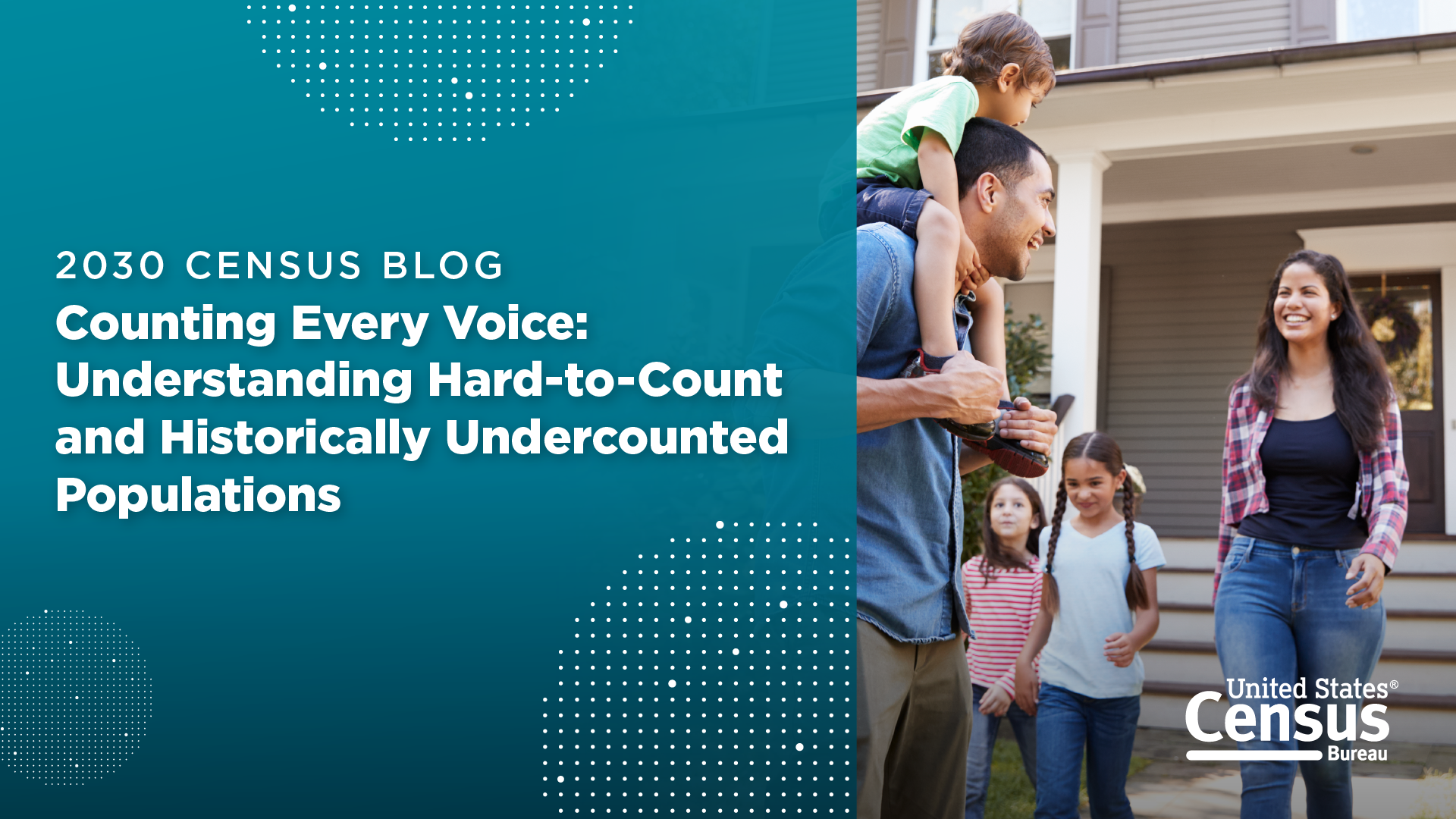2030 Census Research and Testing
On this page:
Overview
Planning for the 2030 Census is now underway and includes research and testing to inform the selection of the 2030 Census operational design.
This design will have to address multiple factors including: a constrained fiscal environment, rapidly changing technology, distrust in government, declining response rates, an increasingly diverse population, informal and complex living arrangements, and a mobile population. It will also address disclosure avoidance methods for protecting respondent confidentiality.
To develop the design, we will factor in public feedback, new research, past census experiences and lessons learned, evolving technology, and the changing world.
The timeline below highlights the various research and testing initiatives throughout the decade that will inform, enhance and refine 2030 Census operations.

We will announce updates related to 2030 Census research and testing on this webpage.
Discover more about our research and testing efforts and what we are doing to prepare for the 2030 Census through these featured blogs.
-
Random Samplings BlogResearch Recommendations: Inputs for the 2030 Census Operational PlanDecember 17, 2024Building on lessons learned from 2020 and prior censuses and incorporating valuable input, we have now finished the Design Selection Phase.
-
Random Samplings BlogTesting Our InnovationsApril 30, 2024Working toward our goal of counting everyone in the census requires a wide variety of interconnected activities.
-
Random Samplings Blog2030 Census Planning: What 2024 BringsJanuary 23, 2024As we embark on a new year filled with possibilities, it’s time to share exciting updates and innovations that will shape the 2030 Census.
2030 Census Research
2030 Census research is grouped into Enhancement Areas (EAs) and disclosure avoidance research. These research areas guide the development of the 2030 Census research agenda. Other research and improvements are also conducted throughout the decade.
This research is being informed by lessons learned from the 2020 Census, stakeholder input, and results of 2020 Census evaluations, assessments, and experiments.
2030 Census Testing
Throughout the decade, we will perform several tests to shape and inform the final 2030 Census design. These tests will refine the operations and technologies that worked successfully for the 2020 Census and also introduce additional innovations for the 2030 Census.
Major Field Tests
Major field tests require substantial logistical commitment, including dedicated office structures and staffing, to conduct.
The 2028 Census Dress Rehearsal will be the second major field test, and Census Day will be April 1, 2028. We expect this field test to be similar in scope to our 2018 End-to-End Census Test, and it will serve as a dry run of operations and the handoffs between them.
Small-Scale Testing
Small-scale testing is designed to gather data about proposed enhancements for the 2030 Census design. This testing is ongoing through 2029, and we will use our findings to inform, enhance and refine 2030 Census operations.
-
2030 Census Locate Address Test (LAT)The Locate Address Test (LAT) aims to find addresses in rural and remote areas of the country. It will be conducted annually from 2024 to 2028.
-
2024 National Census SurveyThe 2024 National Census Survey is a small-scale test providing insight into how people engage with the online questionnaire and invitation materials.
-
2024 Census SurveyThe 2024 Census Survey is a small-scale test providing insight into how people engage with the online questionnaire and the invitation materials received.
-
2023 Census TestThe 2023 Census Test is a small-scale test providing insight into how people engage with the online questionnaire and the invitation materials received.










